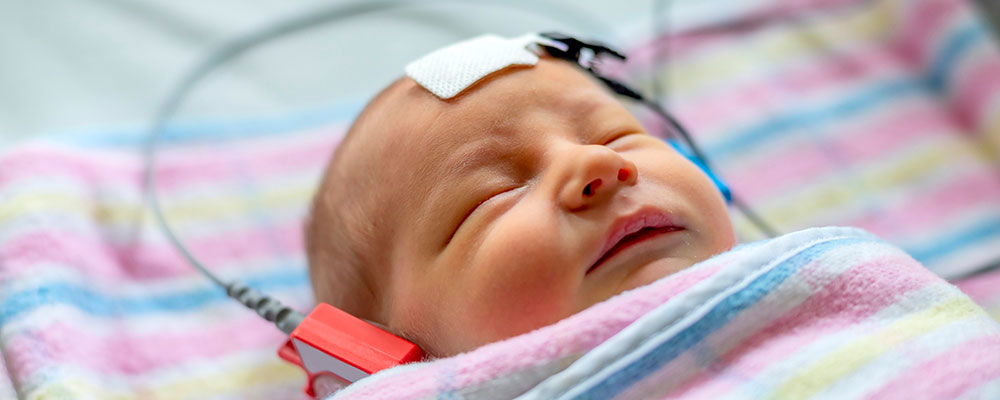Chicago, IL 60601
FREE CONSULTATIONS 312-462-4200
TOLL FREE 833-462-4200
Neonatal Encephalopathy

Birth Injuries Leading to Brain Damage and Cerebral Palsy
Labor and delivery can be a traumatic process for both the mother and the child, and injuries that occur during birth can have long-lasting consequences. Damage to an infant's brain can be especially harmful, leading to conditions such as cerebral palsy. Parents should be aware of the potential causes of child brain injuries, the treatments that are available, and the long-term effects that can result.
What Is Neonatal Encephalopathy?
Neonatal refers to newborn children, and encephalopathy means a condition which affects the brain. Any injury or damage which occurs to a baby's brain is referred to as neonatal encephalopathy. Infant brain injuries can be caused by:
- Lack of oxygen - Asphyxia may occur during birth for a variety of reasons, and it can lead to an especially harmful condition known as hypoxic ischemic encephalopathy, or HIE.
- Infections - Sepsis, which may consist of a viral or bacterial infection in a child's bloodstream, can cause permanent brain damage. An infection may be contracted from the mother or from medical personnel or the environment in the delivery room or hospital.
- Traumatic birth - Skull fractures or other head injuries may occur during delivery if tools such as forceps or vacuum extractors are not used correctly, or if a doctor does not properly account for conditions such as abnormal position of the child or an infant being too large for a safe vaginal delivery. These injuries can result in hemorrhaging of blood around the brain.
- Stroke - Blood clots, brain hemorrhages, infections, or asphyxia can lead to fetal or neonatal strokes in which the blood supply to part of the brain is interrupted. This can lead to permanent brain damage.
Diagnosis and Treatment
Neonatal encephalopathy is typically diagnosed during the physical exam that is performed on an infant immediately after birth. Some signs and symptoms of neonatal encephalopathy include:
- Seizures
- Respiratory difficulties or apnea
- Fever
- Low blood pressure
- Abnormal reflexes
A child with suspected neonatal encephalopathy will typically be admitted to a hospital's neonatal intensive care unit (NICU), and an EEG should be used to monitor their brain activity for at least 48 hours. Depending on the potential causes of the condition, doctors may choose to use a number of possible treatments, including:
- Hypothermia therapy - Cooling treatment administered to the baby's brain may be used to minimize the damage caused by HIE.
- Assisted breathing - A child may be intubated, and a mechanical ventilator may be used to ensure that they receive enough oxygen.
- Medication - If the condition was caused by an infection, antibiotics or antiviral drugs may be administered. A child may also receive anti-seizure medications and drugs to prevent blood clotting.
- Blood transfusion - Blood products such as plasma or packed red blood cells may be administered to ensure that the child's bloodstream can carry enough oxygen and to address issues with blood pressure.
Legal Help With Neonatal Encephalopathy
A brain injury that occurs during birth can not only have immediate effects on a child's health, but it can have a long-term impact on their well-being and quality of life. As you consider how to address the practical issues involved in caring for your child and the financial costs of the treatment they will need, you should be sure to consider your legal options.
At the Birth Injury Law Alliance, we will review your case to determine whether medical negligence was a factor in your baby's injury, and we will help you understand your options for receiving financial assistance. To learn more about the legal help we can provide, contact us at 312-462-4200 to arrange a free consultation.





